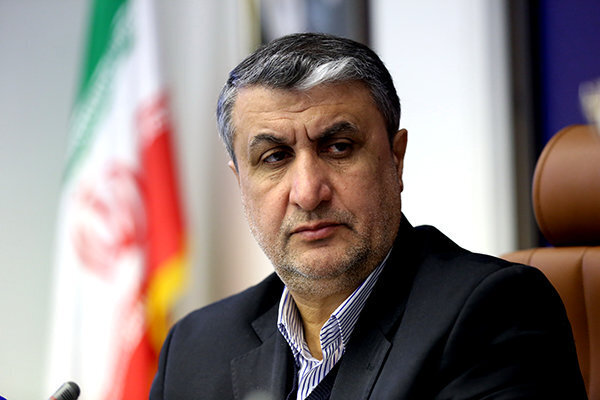Nuclear chief says no halt to Iranian nuclear work despite Israeli threats

TEHRAN – The head of the Atomic Energy Organization of Iran (AEOI) has told reporters that all Iranian nuclear sites are operating normally, unfazed by recent threats of potential Israeli attacks.
Mohammad Eslami made the remarks after a cabinet meeting on Wednesday, emphasizing that the nation’s defensive and security capabilities are consistently prepared to address any potential threats.
“We have consistently confronted adversarial threats to our nation, and our defensive and security measures are always equipped to respond effectively.,” Eslami said, adding, “Our nuclear facilities are integral to the country and are safeguarded under these protocols.”
Eslami also highlighted the need for the international community to hold the Israeli regime accountable for the nuclear threats directed at Iran's nuclear installations.
The chief of the Iranian Atomic Energy sector commented on Iran's potential exit from the NPT in case of an Israeli attack, stating, “The first entity that would have to make such a decision is the parliament. Parliamentary decisions also do not take effect until they are enacted as law and communicated to the government by the Guardian Council.”
“Even if Iran ends up deciding to leave the NPT, there will be a 90-day window for negotiations with the Atomic Energy Agency, following which Iran may proceed with its withdrawal from the agreement,” Eslami added.
Recently, various military and security officials from the Israeli regime have indicated that, in retaliation for Operation True Promised II which targeted the occupied territories on October 1, Israel should target Iran's nuclear facilities.
Iranian officials have in return, declared that they would look into changing the country’s nuclear doctrine if its sites come under attack. Analysts believe leaving the NPT could be a potential response.
The Treaty on the Non-Proliferation of Nuclear Weapons (NPT) is a global accord designed to curb the proliferation of nuclear arms, foster collaboration in the peaceful applications of nuclear energy, and work towards nuclear disarmament. Initially opened for signature in 1968, the treaty came into effect in 1970. With 191 states as signatories, it stands as one of the most widely supported international agreements.
As a party to the treaty, Iran has committed to refraining from the development or acquisition of nuclear weapons and has agreed to IAEA safeguards to ensure the peaceful nature of its nuclear endeavors.
Leave a Comment